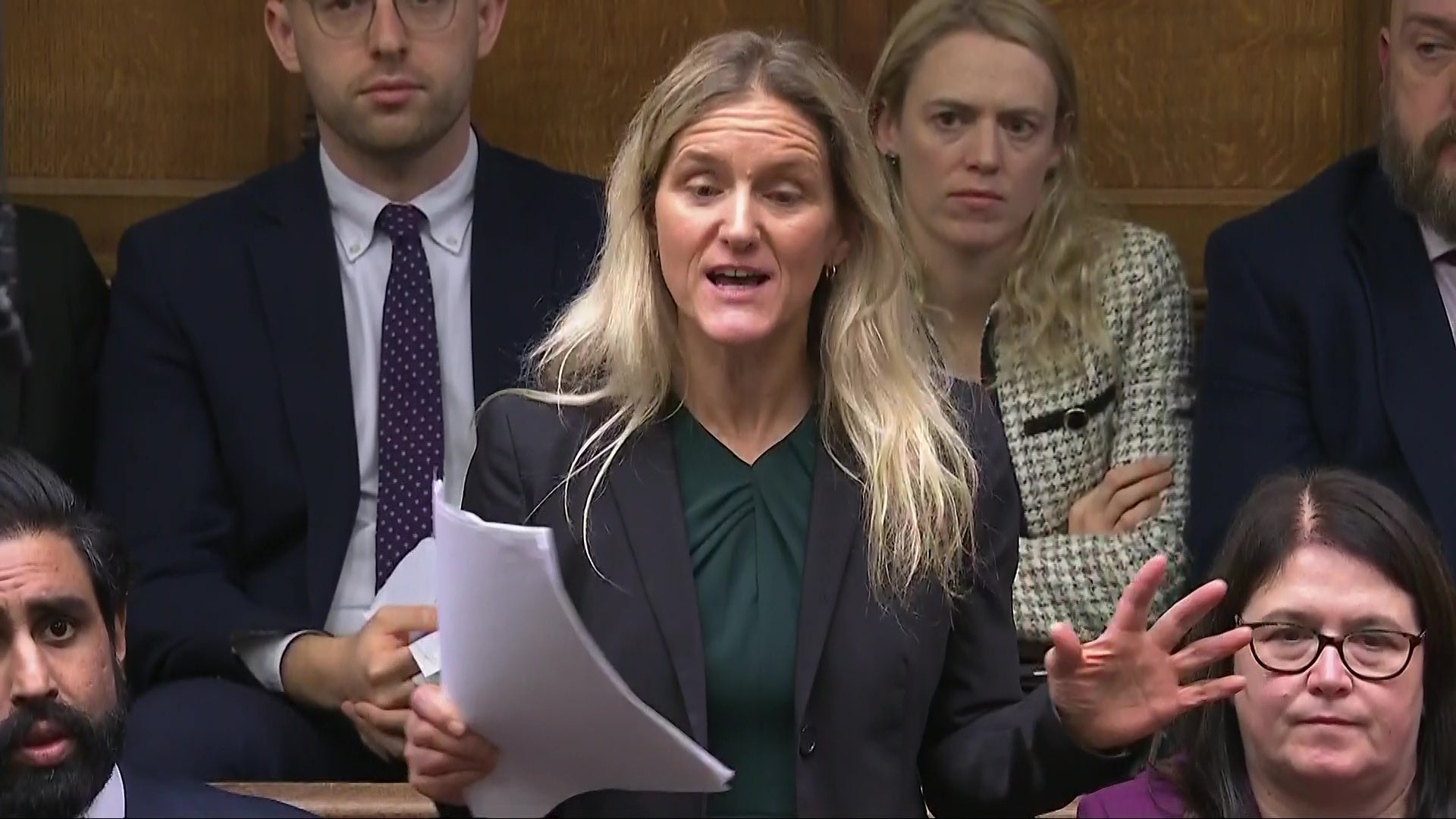Dame Esther Rantzen described Kim Leadbeater’s introduction of her bill as “extraordinary” as MPs voted in favour of the legislation following a fierce commons debate.
The Terminally Ill Adults (End of Life) Bill received 330 ayes and 275 noes, a majority of 55 votes.
The broadcaster, a vocal advocate of the law, said: “She has a complete mastery of the facts. She knows exactly which are the most crucial points.
“She put it all very clearly, taking interventions all the way through, and answering them without ever losing the thread of her argument.
“I was lost in admiration. She’s an extraordinary person.”
Dame Esther, who is also terminally ill, said she was “absolutely thrilled” with the result of the vote.
The bill will now go to the committee stage where MPs can table amendments, before facing further scrutiny and votes in both the House of Commons and the House of Lords, meaning any change in the law would not be agreed until next year at the earliest.
Warning: this article contains information that people might find distressing, including accounts of human suffering.
Key Points
- MPs vote in favour of the assisted dying bill
- Esther Rantzen ‘thrilled’ as assisted dying bill passes
- How did my MP vote?
- Politics Explained: After MPs voted to legalise assisted dying, what happens next?
- Five arguments for and against legalising assisted dying
Opinion: This sends the message that some lives are not worth living
20:30 , Jane DaltonThe devil is in the detail, writes Dame Tanni Grey-Thompson for The Independent:
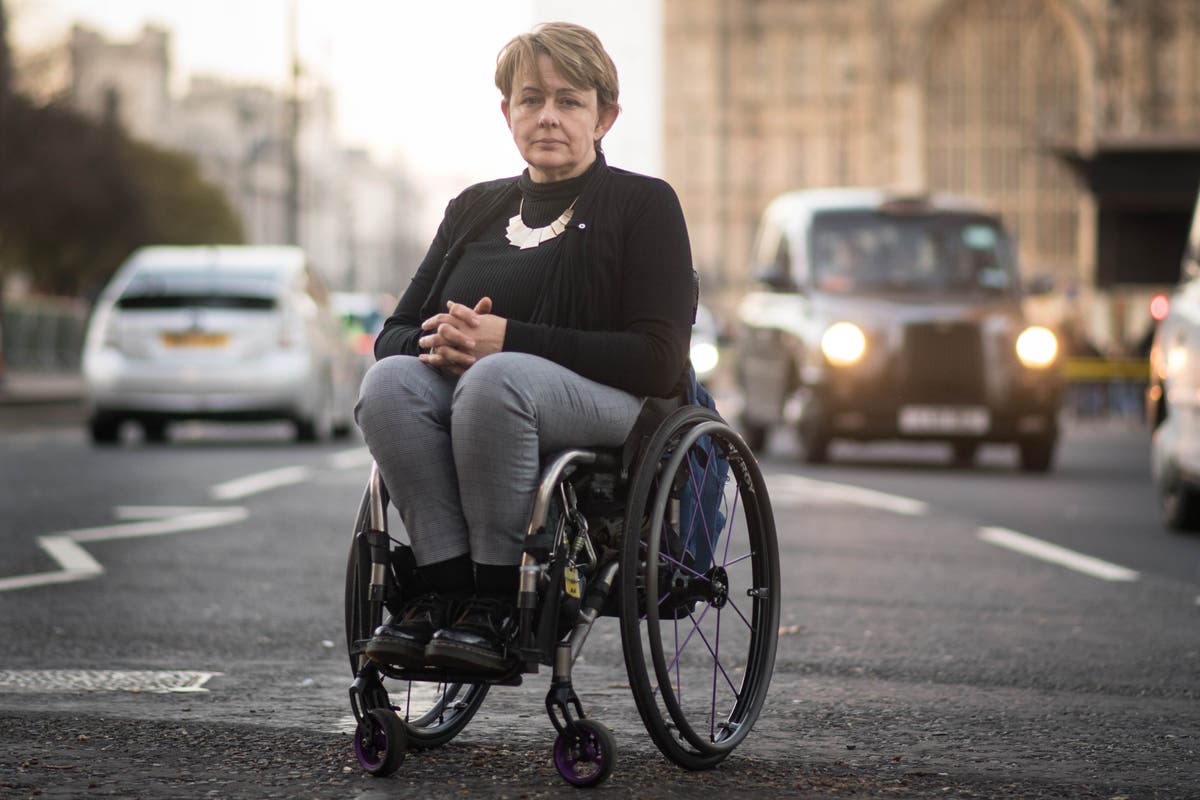
The assisted dying law sends a troubling message about our lives
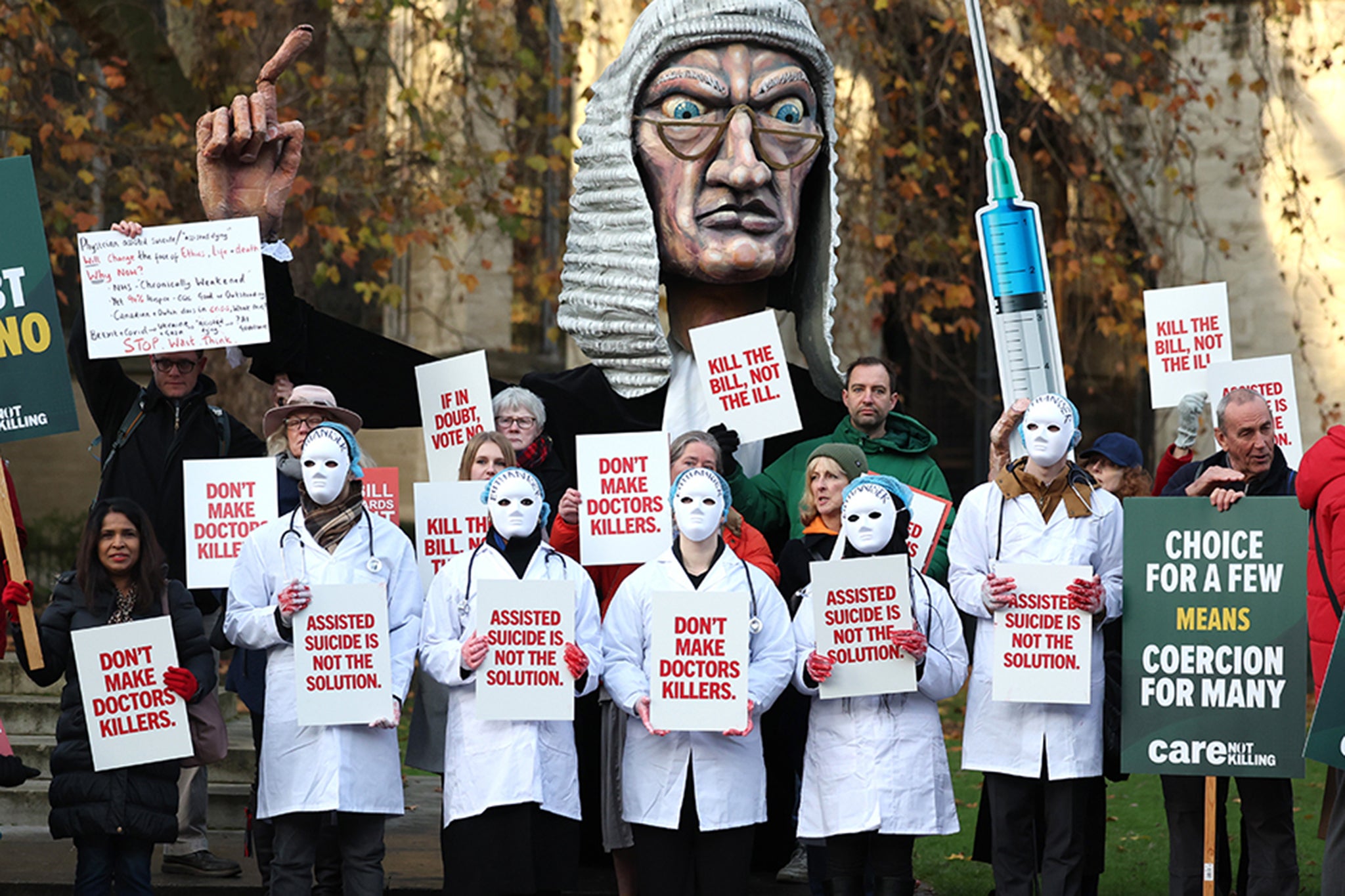
Bill paves way for historic change
19:20 , Jane DaltonThe decision on assisted dying for people who are terminally ill with a life expectancy of six months or under was the most significant Commons vote on social policy since abortion was legalised in the 1960s. Full report:
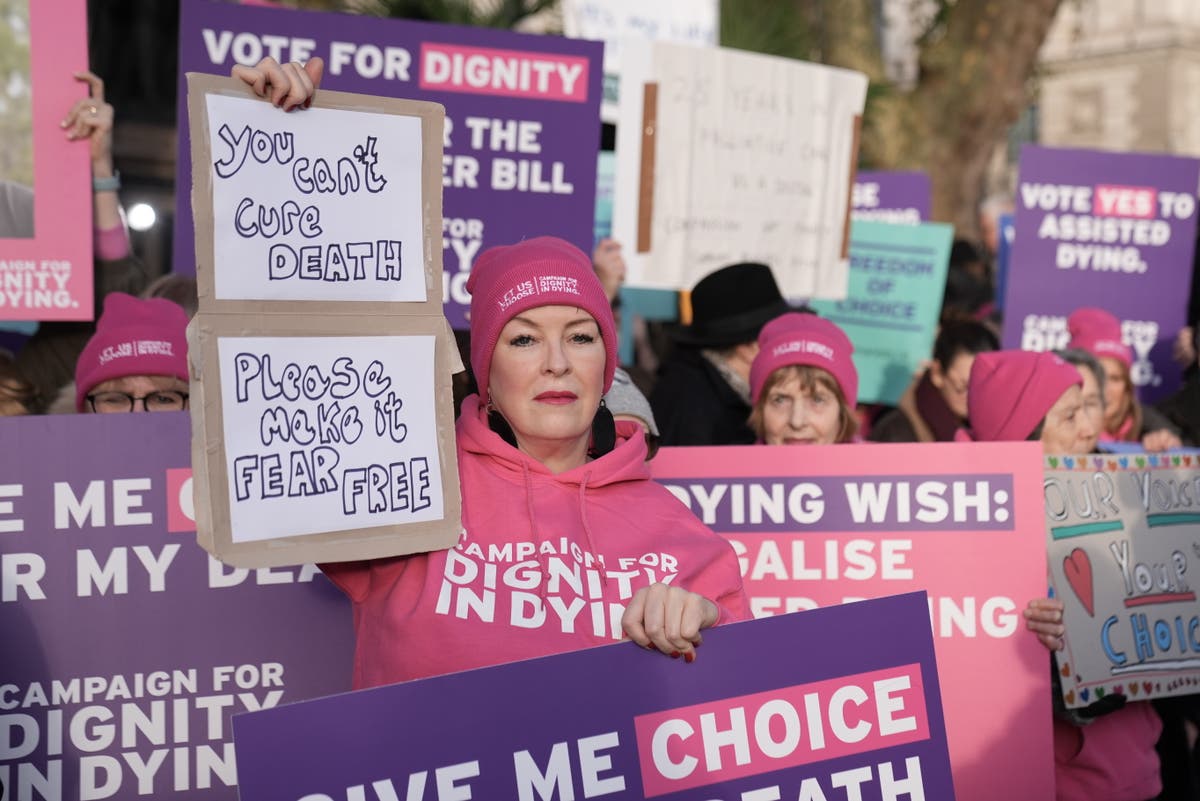
Assisted dying bill passes after vote, paving the way for historic change
The next steps
18:40 , Jane DaltonThe bill has been agreed only in principle, and has a long way to go before becoming law:

After MPs voted to legalise assisted dying, what happens next?
How high-profile MPs voted
18:12 , Jane DaltonHere is how some of the notable names in Parliament voted:
Fifteen members of the Cabinet voted for the Bill, including the prime minister. Colleagues alongside him in the aye lobby included Chancellor Rachel Reeves and Home Secretary Yvette Cooper, Energy Secretary Ed Miliband and new Transport Secretary Heidi Alexander.
Eight voted against, including Health Secretary Wes Streeting, Deputy Prime Minister Angela Rayner, Foreign Secretary David Lammy, Justice Secretary Shabana Mahmood and Women and Equalities minister Anneliese Dodds.
Labour minister Emma Hardy voted in both the aye and no lobbies, and confirmed in a statement that she had registered a formal abstention.
Mr Lammy wrote on social media that he worried that if the plans became law “large numbers of people from all backgrounds” would feel pressure in their final days.
Former prime minister Rishi Sunak was among the 23 Conservative MPs who backed the bill. Writing for the Darlington and Stockton Times - his constituency’s local paper - Mr Sunak wrote: “I believe that, where possible, we should prevent suffering. I know from speaking and listening to many of you, that too many people have to go through painful, traumatic, drawn-out deaths.
“These moving, deeply personal stories have left a profound impression on me.”

Politics Explained: After MPs voted to legalise assisted dying, what happens next?
17:43 , Jabed Ahmed
After MPs voted to legalise assisted dying, what happens next?
Opponents of assisted dying vow to fight on as Bill clears first hurdle
17:28 , Jabed AhmedOpponents of assisted dying vowed to fight on after Kim Leadbeater’s Bill passed its first Commons hurdle on Friday.
Conservative MP Danny Kruger, who led opposition to the Bill during Friday’s debate, said he was “disappointed” but added that the vote was “simply to continue the discussion”.
He said: “I was reassured that so many colleagues recognised that the Bill is very dangerous, there’s lots of problems with it and they have said they want to improve it in committee.
“I want to help them do that and I hope we can make substantial improvements before it comes back for third reading, and I hope that if it’s not good enough, if the safeguards are not strengthened, then colleagues will vote against it before it comes into law.”
The Bill will now go before a committee of MPs, who will carry out line-by-line scrutiny of the legislation and can propose amendments.
Bishop of London says ‘today’s vote is not the end of the debate’
16:58 , Jabed AhmedBishop of London, Sarah Mullally, the Church of England's lead bishop for healthcare, said: "I have been deeply moved watching proceedings unfold in the House of Commons today.
"My prayers are with all those who have been affected, who have shared and heard their stories, and facilitated this debate.
"The Church of England believes that the compassionate response at the end of life lies in the provision of high quality palliative care services to all who need them.
"Today’s vote still leaves the question of how this could be implemented in an overstretched and under-funded NHS, social care and legal system.
"Safeguarding the most vulnerable must be at the heart of the coming Parliamentary process, today’s vote is not the end of the debate."
Watch: Esther Rantzen ‘thrilled’ as assisted dying bill passes
16:46 , Jabed AhmedKim Leadbeater celebrates her the results of her bill
16:29 , Jabed Ahmed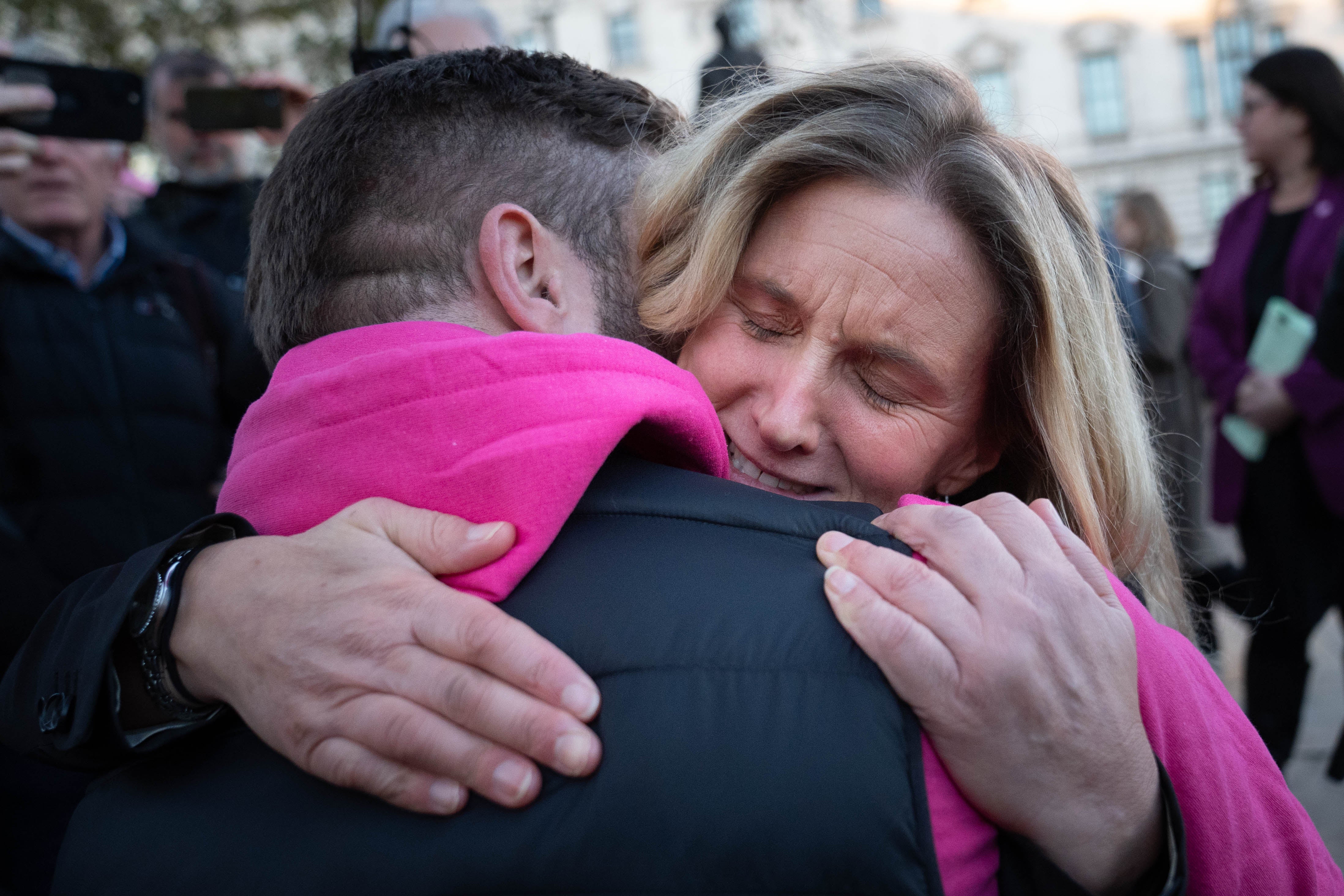


Full report: Assisted dying bill passes after vote paving the way for historic change
16:18 , Jabed Ahmed
Assisted dying bill passes after vote paving the way for historic change
Country must ‘urgently fix end of life care,’ Marie Curie CEO says
16:09 , Jabed AhmedMatthew Reed, Chief Executive of Marie Curie, said: “Marie Curie remains neutral on the matter of assisted dying, but what we are absolutely not neutral on is the need to urgently fix end of life care. In recent weeks, many MPs have acknowledged the importance of palliative care. The Secretary of State for Health and Social Care himself has even said that existing palliative care isn’t good enough.
“But warm words won’t fix our broken end of life care system. The bill says nothing about the urgent need to improve existing provision. It says nothing about the postcode lottery for access to end of life care, nothing about the funding crisis, and nothing about people spending their final moments in A&E because our health system can’t offer them the care and support they need, in or out of hours.
“Nine out of ten people would benefit from palliative care, but far too many miss out, genuine choice at the end of life cannot exist unless dying people are able to access high quality palliative and end of life care, when and where they need it.
“As this Bill progresses, we will be encouraging Parliamentarians to amend the Bill to ensure that it sets out the improvements that must be made to our palliative care system”
Supporters celebrate with Kim Leadbeater outside Parliament
15:57 , Jabed AhmedCrowds of supporters surrounded and hugged MP Kim Leadbeater outside Parliament after her assisted dying private members’ Bill passed.
Photographers and videographers chased after the Labour MP as she walked over to Parliament Square to celebrate with the supporters.
People shouted “thank you Kim” as she was mobbed by members of the public, activists, and the press.
Speaking to the press, Ms Leadbeater said: “It’s been tough, you know, these families have campaigned on this issue for years.
“I know what it means to people, if we hadn’t achieved what we achieved today I’d have let them down.
“I’m also really proud and really pleased that we had a very respectful debate in Parliament.
“It was robust but it was compassionate. Lots of people with different views, and I think Parliament showed itself in its best light today, and I’m very proud of that.”

Woman who saw her husband’s painful death says vote is ‘amazing news’
15:47 , Holly BancroftPatricia Donoghue, 70, who is in favour of assisted dying after seeing her husband Kevan’s painful death in 2015, told The Independent that the vote was “amazing news”.
She added: “I’m a bit surprised but I’m relieved. I’m hopeful that it will become law and that people will have a choice. People are just asking for a choice, it’s not for everybody, but for those who would like to have that choice it is an amazing day.”
Her husband Kevan was diagnosed with bile duct cancer in 2013 and was unable to ingest food and water in his last three weeks of life after he developed a blockage in his stomach.
Ms Donoghue said: “I was looking at the numbers yesterday and I thought it looked like it might happen. It’s a massive responsibility that the MPs have. I’m glad that the MPs have taken it seriously, and that now that it has happened people will hopefully give more thought to it. I think they’ve made the correct decision, and I hope that it goes through eventually. I understand that it has to be done very carefully and with consideration, but they can look at how other countries have done it and make this watertight.”
She said that MPs can use the next few months to “reassure people who are worried that there is nothing to worry about, and that there are safeguards in place”.
Ms Donoghue, who lives near Glasgow, is hopeful that Scotland will follow suit if England and Wales make the Bill law.
Read Kevan’s full story here:

‘My husband was starving and in pain when he died – he deserved a dignified death’’
Son whose father took his own own life after chronic disease says he is ‘incredibly relieved'
15:33 , Jabed AhmedA son whose father took his own life after suffering from multiple sclerosis said he was “incredibly relieved” the assisted dying Bill had passed.
Speaking from among a crowd of supporters of the Bill gathered outside Parliament, Anil Douglas, 35, from Walthamstow, London, said: “I’m incredibly relieved.
“I’m over the moon. MPs have voted for a safer, kinder, more compassionate future for dying people. I think it’s wonderful.”
Anil’s father Ian Douglas took his own life after suffering from MS for years. He said he felt like his father’s son today.
“I feel very much like his son today,” he said. “He was an active campaigner in various causes throughout his life. Being here today, in his memory, and in his honour, fighting for a change I know he would have benefited from and would have supported, means the world to me.”
He said he felt shock and a “deep-set relief” when he heard the result. “I think I was cautiously optimistic, but when that optimism became a reality – relief,” he said.
Sunak says he voted for the bill to help ‘reduce suffering’
15:24 , Jabed AhmedConservative former prime minister Rishi Sunak said he voted for the Bill as he believed it would help to “reduce suffering”.
Writing for the Darlington and Stockton Times – his local newspaper – the Conservative MP for Richmond and Northallerton said: “On Friday, after much thought, I voted for the assisted dying Bill. This was a free vote, with MPs, rightly, allowed to follow their consciences, not the party line. MPs of all stripes voted for, and against, this change. There were people I am proud to call friends and whom I deeply admire in both lobbies.”
He added: “I believe that, where possible, we should prevent suffering. I know from speaking and listening to many of you, that too many people have to go through painful, traumatic, drawn-out deaths.
“These moving, deeply personal stories have left a profound impression on me. This Bill will make these ordeals, which are so traumatic for patients and their families, less frequent: it will reduce suffering.”
Mr Sunak described himself as a “religious person” and said he understood the “deep moral and philosophical concerns that many people have about this issue”.
But he added: “I also come from a medical family and this question divides opinion among my own relatives. So, it is important to stress that any medical practitioner who has moral, religious or philosophical objections to this change will have the right not to be involved in this aspect of care.”
Politics Explained: After MPs voted to legalise assisted dying, what happens next?
15:17 , Jabed Ahmed
After MPs voted to legalise assisted dying, what happens next?
Government position on assisted dying remains neutral
15:09 , Jabed AhmedA spokesperson for Sir Keir Starmer said that the Government’s position on assisted dying “remains neutral”.
The spokesperson said: “As is a matter of public record, the Prime Minister voted for the Assisted Dying Private Members’ Bill.
“The Government’s position remains neutral, and we will respect the will of Parliament.”
‘Common sense prevailed,’ Esther Rantzen’s daughter says
15:08 , Jabed AhmedDame Esther Rantzen’s daughter has said “common sense prevailed” after the assisted dying bill passed its second reading.
Rebecca Wilcox, whose mother Dame Esther is terminally ill and has argued strongly for a change in the law, said the change is “huge” and she is “so relieved”.
Speaking to Times Radio, Ms Wilcox said it would mean “huge amounts” to Dame Esther, adding: “I went out and spoke to her halfway through and we both grumbled about the people that we grumbled about and we both were massively adoring of the people that we were adoring about.
“So I just know that this is huge, huge. I mean you've caught me in a state of pure shock so sorry about that.”
Former PM Sunak votes in favour of legislation
15:02 , Jabed AhmedFormer prime minister Rishi Sunak has voted in support of the assisted dying Bill, meanwhile Conservative Party leader Kemi Badenoch has voted against.
Shadow chancellor Mel Stride, shadow home secretary Chris Philp, and shadow education secretary Laura Trott voted in support of the Terminally Ill Adults (End of Life) Bill at its second reading.
Among those voting against the Bill were shadow foreign secretary Priti Patel, shadow justice secretary Robert Jenrick, and shadow work and pensions secretary Helen Whately. The Conservative shadow health secretary Edward Argar also voted against the Bill.
Commons data shows the list of shadow ministers who voted for assisted dying: Mel Stride, Chris Philp, Laura Trott, James Cartlidge, and Victoria Atkins.
The list of shadow ministers who voted against assisted dying: Kemi Badenoch, Richard Fuller, Priti Patel, Alex Burghart, Helen Whately, Andrew Griffith, Claire Coutinho, Robert Jenrick, Edward Argar, Stuart Andrew, Gareth Bacon, Alan Mak, Mims Davies, Andrew Bowie, and Jesse Norman.
Pictured: Campaigners against legislation react following vote
14:58 , Jabed Ahmed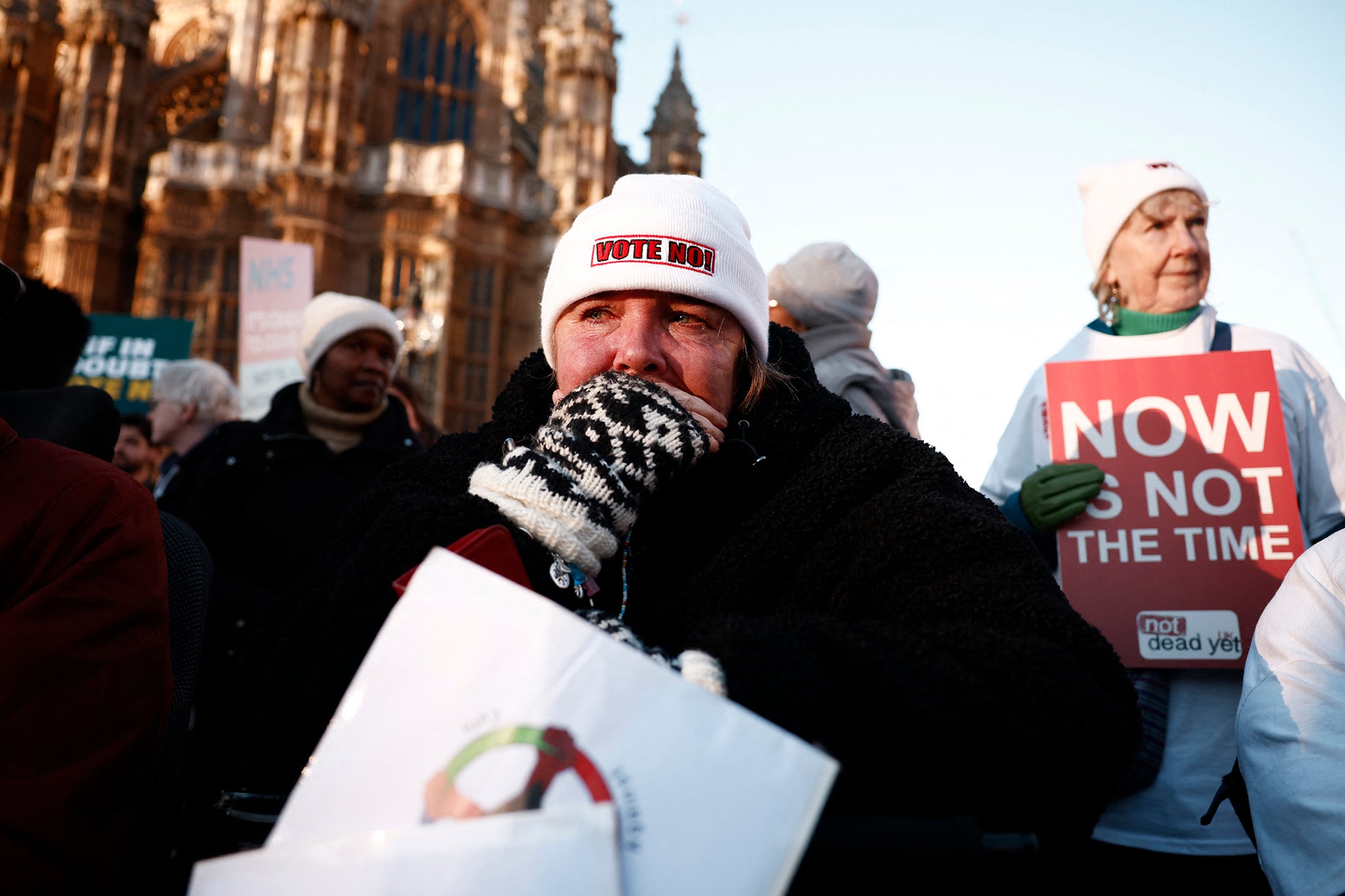
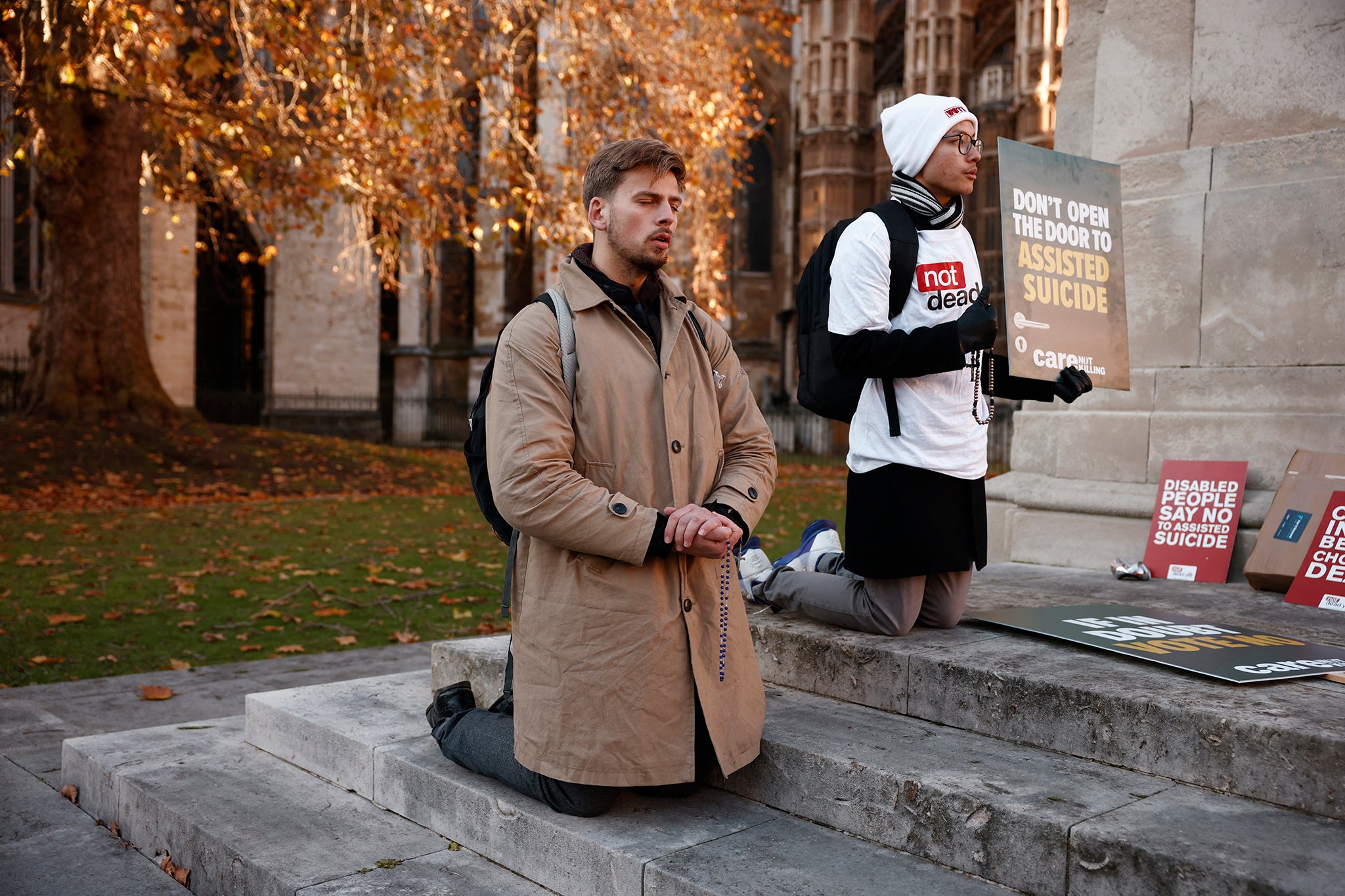
Supporters of the legislation celebrate outside parliament
14:54 , Jabed AhmedSupporters of the assisted dying Bill wept and hugged each other outside Parliament as the news came through that it had been passed by MPs.
The crowd in Parliament Square erupted into cheers as they watched the results on their phones.
Joshua Cook, 33, from Huddersfield, who has Huntington’s disease – an incurable neurodegenerative disease, said it was a “relief”.
“It is a weight off my mind, as a terminally ill person, and you can just look around here, at people who are truly affected by this,” he said. “It’s a relief it’s history, finally we are getting towards having a society that shows love and compassion above the need to just keep people alive.”

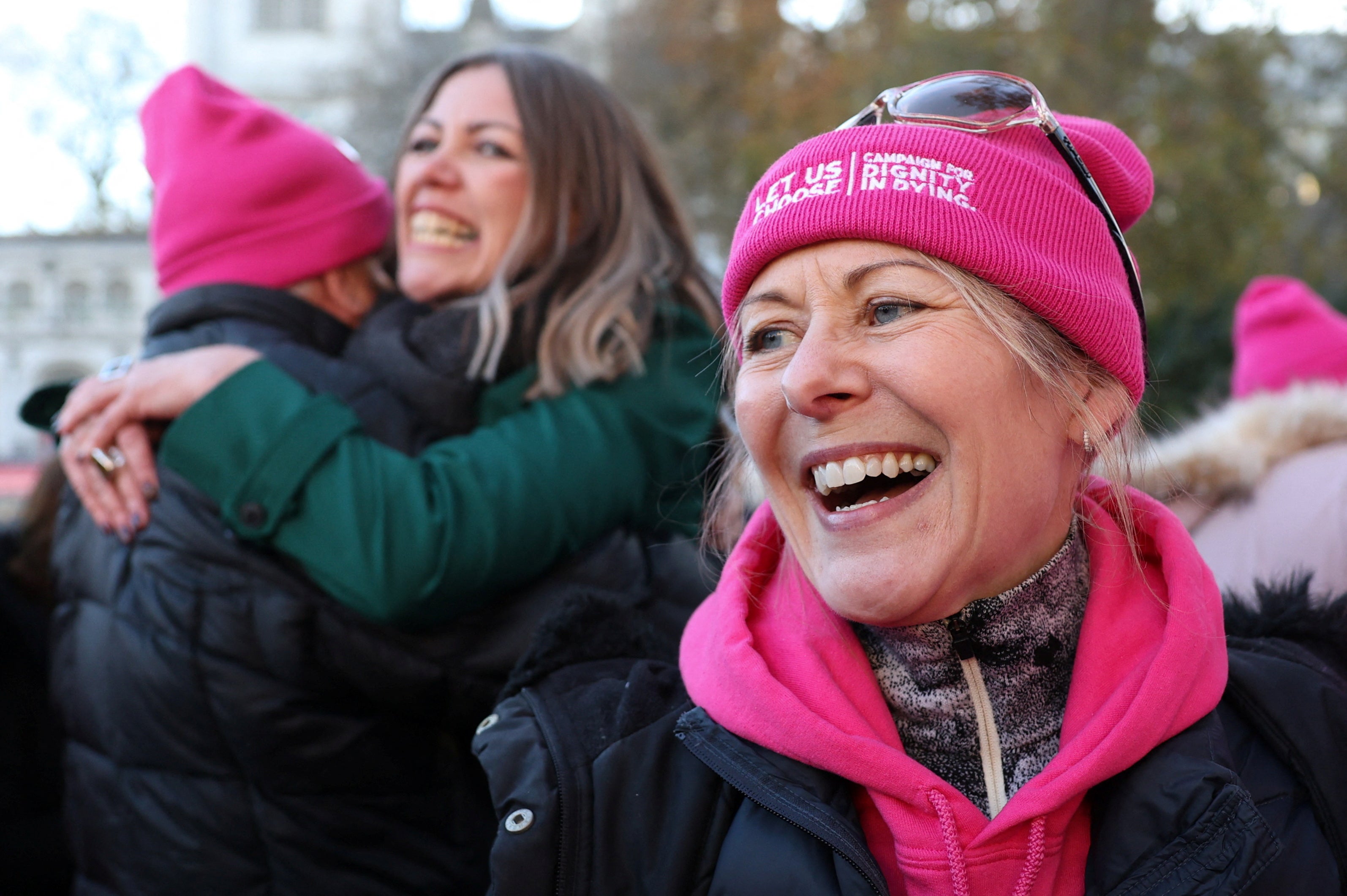
Kim Leadbeater says ‘there is plenty of time to get this right’
14:53 , Jabed AhmedLabour MP Kim Leadbeater, the Bill’s sponsor, said there was plenty of time to get it right as it underwent further scrutiny in Parliament.
She told the BBC: “We have shown Parliament in its best light today. Very respectful, very compassionate debate, irrespective of the different views that people hold.
“We take the Bill to the next stage now, we continue the process and it will be a very thorough process but we also have to champion all the issues that have been talked about today, whether that is palliative care, whether that is the rights of disabled people, the NHS. All those things are important.”
Spen Valley MP Ms Leadbeater said a “thorough, robust” committee would now work to make the Bill “the best it possible can be”.
Amid concerns about rushing the Bill through the Commons, she said it could face another six months of parliamentary scrutiny, adding: “There is plenty of time to get this right.”
Dame Esther Rantzen says vote is unlikely to impact her own life
14:52 , Jabed AhmedDame Esther Rantzen said Friday’s vote is unlikely to make any impact on her own life.
She said: “It doesn’t really change my situation because it’s going to take probably almost two years for it to change the law, and I’d be astonished if the drug I’m on manages to extend my life that far.”
Dame Esther said she thinks she will have to go to Dignitas in Switzerland.
“But I will do so in the knowledge that future generations will be spared the ordeals we have to suffer at the moment, as long as the third reading is voted through,” she said.
How the cabinet voted
14:51 , Jabed AhmedMembers of the Cabinet who voted for the assisted dying legislation were:
- Chancellor Rachel Reeves,
- Chancellor of the Duchy of Lancaster Pat McFadden,
- Home Secretary Yvette Cooper,
- Defence Secretary John Healey,
- Energy Security and Net Zero Secretary Ed Miliband,
- Work and Pensions Secretary Liz Kendall,
- Science Innovation and Technology Secretary Peter Kyle,
- Transport Secretary Heidi Alexander,
- Environment Secretary Steve Reed,
- Culture Secretary Lisa Nandy,
- Northern Ireland Secretary Hilary Benn,
- Welsh Secretary Jo Stevens,
- Commons Leader Lucy Powell.
Members of the Cabinet who voted against the assisted dying legislation were:
- Deputy Prime Minister Angela Rayner,
- Foreign Secretary David Lammy,
- Justice Secretary Shabana Mahmood,
- Health Secretary Wes Streeting,
- Education Secretary Bridget Phillipson
- Business and Trade Secretary Jonathan Reynolds
There was no vote recorded for Secretary of State for Scotland Ian Murray.
Dignity In Dying says vote marks ‘historic step'
14:50 , Jabed AhmedDignity In Dying said Friday’s vote marks a “historic step towards greater choice and protection for dying people”.
Sarah Wootton, chief executive of the campaign group said: “This is a historic step towards greater choice and protection for dying people.
“Parliament has listened to dying people and is reflecting their views, at last.
“Many will be feeling overwhelming relief and gratitude that, today, our country has moved closer than ever before to a safer and more compassionate law.”
She added: “Significant though this moment is, this is just the start of the journey for the Bill.”
Christian Concern says legislation will create ‘more suffering and chaos in the NHS’
14:47 , Jabed AhmedChristian Concern has said the vote in favour of assisted dying marks a “very Black Friday for the vulnerable in this country”.
Andrea Williams, the group’s chief executive, said: “Today is indeed a very Black Friday for the vulnerable in this country, but this is not over.
“The proposals in this dangerous Bill have been completely exposed. The proposed safeguards are completely meaningless, and more and more MPs are waking up to that reality.
“This Bill will create more suffering and chaos in the NHS, not less, and if it goes through, the vulnerable will become more vulnerable.
“MPs are voting for the Bill at this stage in the hope that it will be fixed, however, the legislation is framed in a way that means it can’t be changed.
“It must be stopped at third reading, and we will not give up working to protect life and the most vulnerable in this country from these reckless and rushed proposals.”
Watch moment MPs vote in favour of historic assisted dying legislation
14:47 , Jabed Ahmed
Watch moment MPs vote in favour of historic assisted dying legislation
Assisted dying bill: How did my MP vote?
14:45 , Jabed Ahmed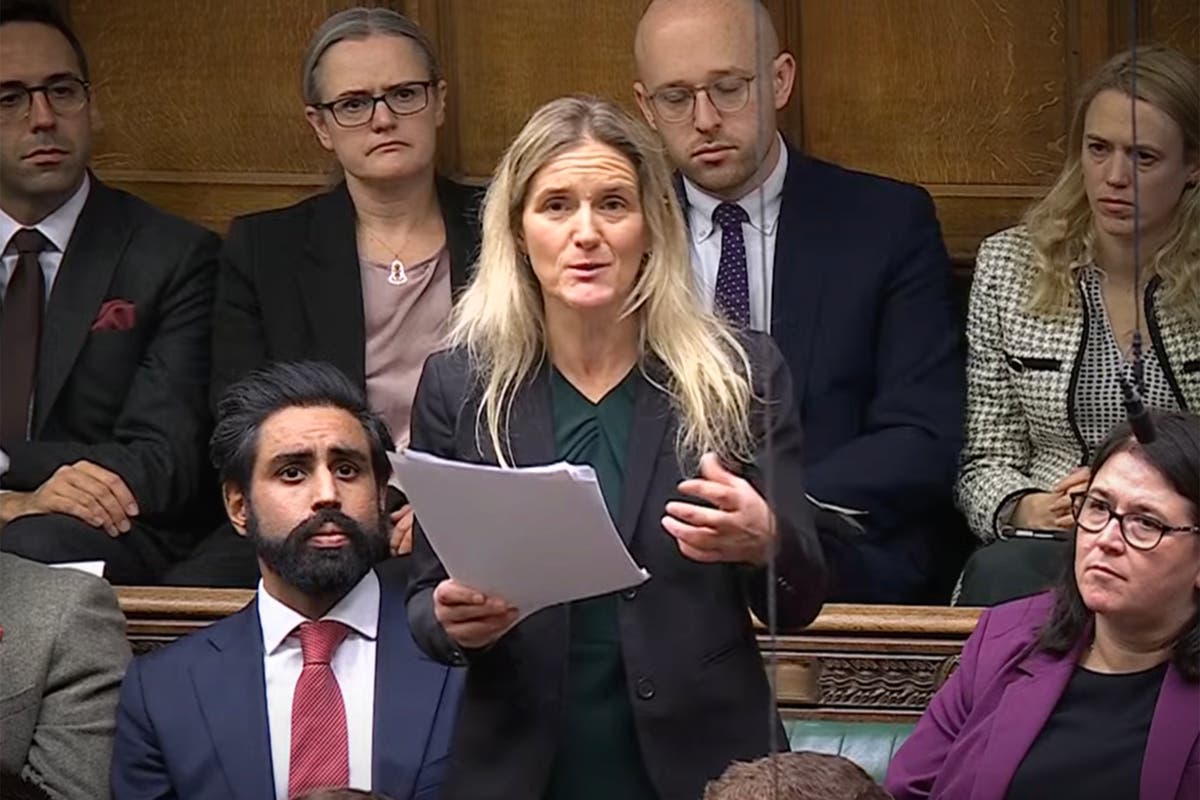
Christian Action Research and Education says result is ‘deeply troubling'
14:44 , Jabed AhmedRoss Hendry, chief executive of Christian Action Research and Education (CARE), said: “Today’s vote is deeply troubling, particularly for vulnerable and marginalised people in England and Wales who are fearful of a change in the law.
“Legalising assisted suicide would diminish the value we ascribe to human life in our legislation and our institutions and create a two-tier society where suicide prevention doesn’t extend to all people. This would be a moral failure, and a huge step backwards.
“As with other assisted suicide Bills in the past, there are no safeguards in this Bill that will rule out coercion of vulnerable people, and people ending their lives because they feel like a burden or lack proper support. There is no such thing as a ‘safe’ assisted suicide law.
“Parliament does have a responsibility to build better support for those who are dying but not through this dangerous Bill. We need a national conversation on how we ensure excellent, universally accessible end-of-life and palliative care, and stronger support for marginalised groups.
“We would urge parliamentarians to focus on this positive endeavour, and dismiss the dangerous, and disproven campaign for assisted suicide.”
Dame Esther Rantzen says she is ‘absolutely thrilled’ with result
14:42 , Jabed AhmedDame Esther Rantzen, who is terminally ill and has argued strongly for a change in the law, said she was “absolutely thrilled” with the result of the vote.
She said: “I listened to the debate and it was very deeply felt. Members of Parliament, whether they opposed it or proposed it, had obviously given it a great deal of thought, and right up to the end of the debate, I had no idea whether it would be voted through or not.
“So I’m absolutely thrilled with the results.”
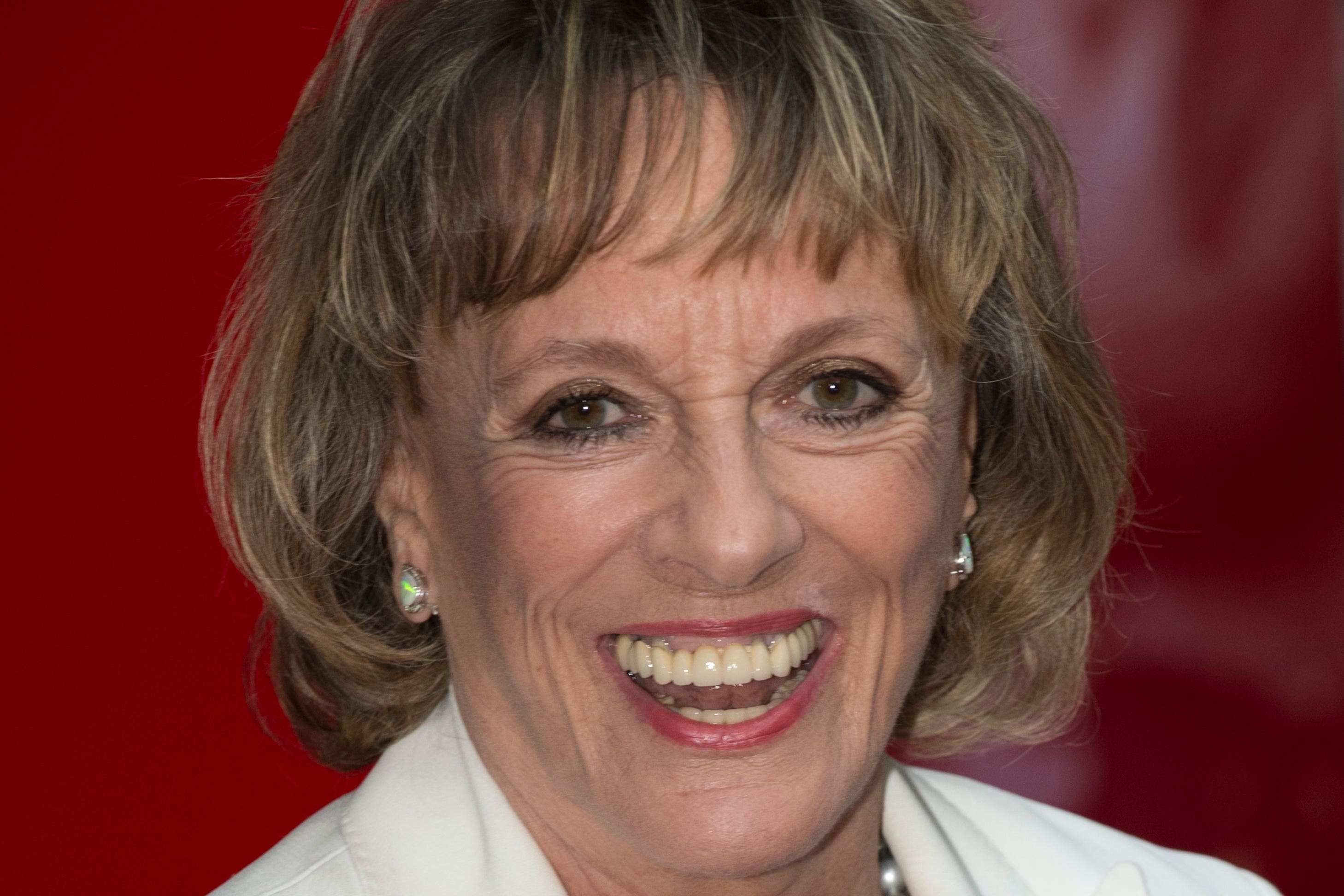
Starmer votes in favour of legislation
14:40 , Jabed AhmedPrime minister Sir Keir Starmer voted in favour of the assisted dying legislation, parliamentary voting data has shown.
He previously refused to reveal his position as he did not want to pressure other MPs.
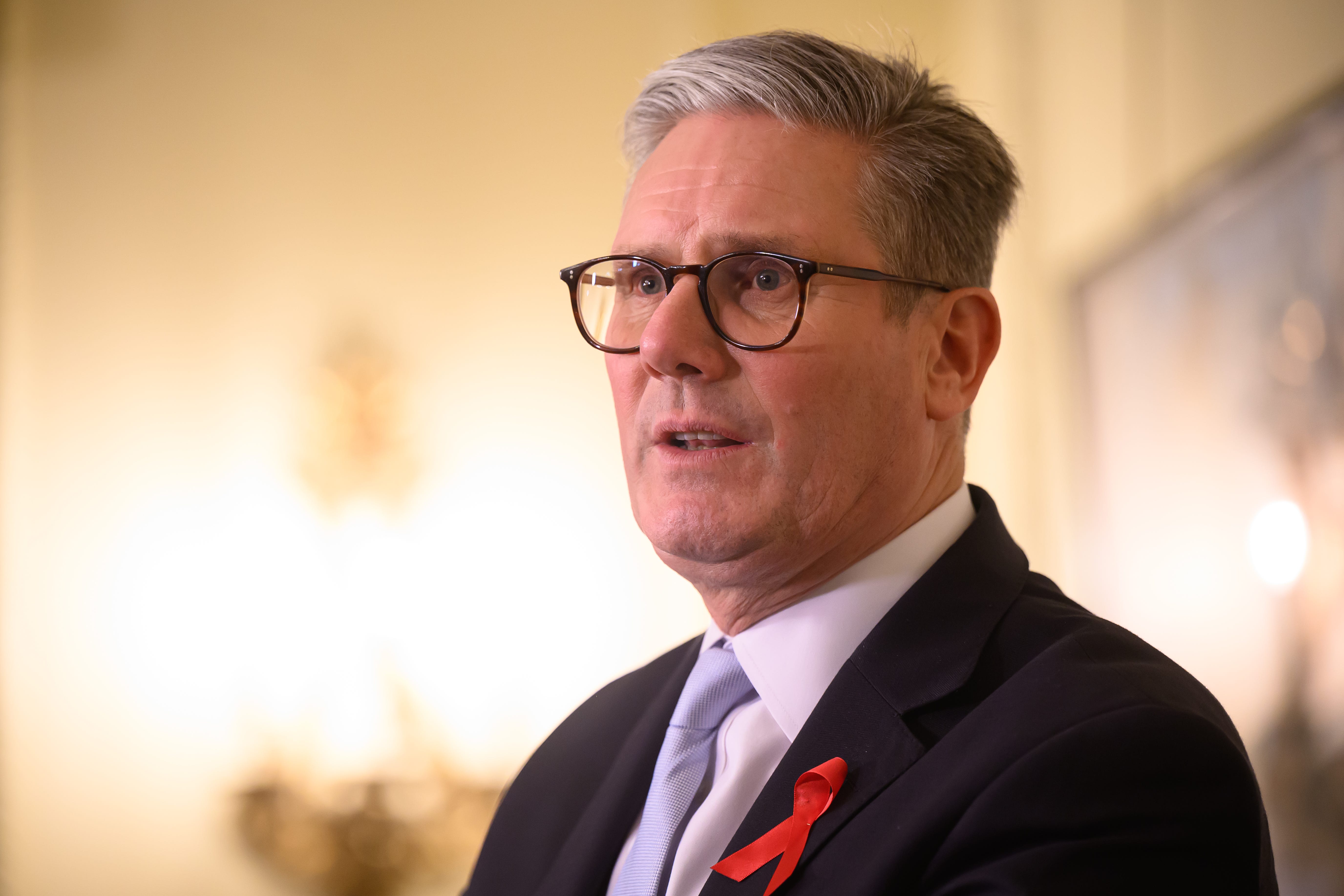
Trevor Moore, Chair of My Death, My Decision says:
14:29 , Jabed Ahmed“Thousands of people will be heartened by this result. Every day, 20 people in the UK are suffering unbearable pain at the end of their lives despite receiving the best possible care. For them, the choices are stark and harrowing: travel to Switzerland, and end their life by suicide, stop eating or drinking, or face and agonising natural death. These people deserve better. They deserve the dignity of choice at the end of their lives, and we are relieved to see MPs acknowledge this.
“We are glad that MPs listened to the public and the evidence, and we hope this Bill will pass its subsequent stages through further respectful and essential debate.”
Assisted dying bill marks 'historic first step' toward dignity in dying
14:29 , Jabed AhmedWelcoming the passage of the bill, Humanists chief executive Andrew Copson said it was a "historic first step" toward people having choice, dignity, and compassion at the end of their lives.
He added: "As the Bill goes through further stages and detail is debated, detailed questions of eligibility, process, and safeguards obviously remain on the table, but this is a historic Bill which would give many suffering people the choice and dignity they desire and deserve.
"The fact of the matter is that assisted dying is already happening in this country. Some are travelling to Switzerland, if they have the money and mobility to do so. Others are dying in traumatic circumstances by suicide, assisted or otherwise. Many more are suffering greatly, even while receiving the best possible care. This vote shows that MPs see the need to introduce real safeguards to our law where there are currently none."
BREAKING: MPs vote in favour of the assisted dying bill
14:23 , Jabed AhmedMPs have voted in favour of the assisted dying bill following a fierce commons debate.
The Terminally Ill Adults (End of Life) Bill received 330 ayes and 275 noes.
In a sign of the level of feeling on the divisive issue, more than 160 MPs made bids to speak during Friday’s Commons debate – the first on the issue in almost a decade.
The bill will now go to committee stage where MPs can table amendments, before facing further scrutiny and votes in both the House of Commons and the House of Lords, meaning any change in the law would not be agreed until next year at the earliest.
The law would allow terminally ill adults in England and Wales with less than six months to live to end their lives, subject to the approval of two doctors and a High Court judge.
MPs begin voting
14:10 , Jabed AhmedMPs have begun voting on whether or not to give the Terminally Ill Adults (End of Life) Bill a second reading.
Robert Jenrick says legal safeguards are ‘grossly inadequate’
14:09 , Jabed AhmedConservative former cabinet minister Robert Jenrick said the legal and judicial safeguards in the assisted dying Bill were “grossly inadequate” and suggested any legislation approved by Parliament could change as a result of decisions by “activist judges” at the European Court of Human Rights.
He told MPs: “Bad law on trivial things is bad enough, and I’ve seen a lot of that in my time in this House, but bad law on matters of life and death is unforgivable.”
Mr Jenrick added: “Let’s think about the role of judges. The test which is to be applied is a low one, it’s the civil law threshold, this is a balance of probabilities. This means a judge could see real risk of coercion and still sign-off this individual for assisted death; if the threshold was not reached of 50% or more, the judge would sign-off the individual.”
The Newark MP, speaking from the backbenches but who also serves as shadow justice secretary, said: “I worry, in fact I am as certain as night follows day, this law if passed will change. Not as a result of the individuals in this chamber or in the Lords, but as a result of judges in other places.
“We’ve seen that time and again. It may be on either side of the debate but it will happen. This Act, if passed, will be subject to activist judges in Strasbourg. They will change it fundamentally and we have to be prepared for that. I don’t want to see that happen.”
Alicia Kearns says it is ‘wrong’ not to give people a choice
13:59 , Jabed AhmedConservative MP Alicia Kearns has said it is “wrong” not to give those with six months to live a choice, as she spoke about her mother’s experience of cancer.
The West Rutland MP told the Commons: “Imagine a situation where you have cancer that day by day is breaking every individual vertebrae on your body, one by one. There is nothing that can take away the pain, and that is a situation in which my mother lost her life, her last words were ‘I cannot go on like this’.
“And thankfully for her, there were only a few more days of pain. But for others, there are months, and before they get to that six months, they will have suffered from years of excruciating agony that palliative care cannot resolve.”
“To deny choice to others, especially those with only six months to live, where their personal choice does no harm, is wrong,” she added.
Downing Street declines to say how Starmer will vote
13:51 , Jabed AhmedDowning Street declined to say how Sir Keir Starmer will vote on assisted dying legislation but said he is paying close attention to the debate in the Commons.
“He’s obviously paying extremely close attention to the debate. Ministers must be able to vote according to their conscience,” the Prime Minister’s deputy spokesman said.
He added: “People across the country will be paying extremely close attention to today’s vote, but this is a matter of conscience.
“It is for Parliament to decide changes to the law, and the Prime Minister is on record as saying he’s not going to say or do anything that will put pressure on other people in relation to their vote.
“Every MP will have to make his or her mind up and decide what they want to do when that vote comes.”
Father of the house fears putting money into the NHS “to fund death”
13:41 , Jabed AhmedFather of the House Sir Edward Leigh said he fears putting money into the NHS “to fund death”.
Sir Edward, the Conservative MP for Gainsborough, told the Commons: “Yes, we have to fund our hospice movement seriously. It is very worrying that we’re going to fund the NHS to fund death, but we’re not adequately funding our hospice movement.”
He added: “What sort of society are we? Are we a society that loves our NHS, that loves life, that loves caring, that loves the hospice movement? Or are we a society which believes that there is despair? So, I will be voting for hope at 2.30pm and I will be voting against this Bill.”
Dr Peter Prinsley, the Labour MP for Bury St Edmunds and Stowmarket and an ear, nose, and throat surgeon, supported the Bill and said: “I have seen uncontrollable pain, choking, and I am sorry to say, the frightful sight of a man bleeding to death whilst conscious, as a cancer has eaten away at the carotid artery. This is called a carotid blowout. I know the terrifying loss of dignity and control in the last days of life.
“I’m speaking here of people who are dying, not people living well with their chronic or terminal diseases.”
He added: “This is not some slippery slope – we are shortening death, not life, for our patients. This is not life or death, this is death or death. Coercion and manipulation have been spoken about and are no doubt feared, but I think the danger of no change to the law is a greater fear for those who are dying and wish to have choice.”
Disabled Labour MP says supporting bill ‘one of the hardest decisions that I have had to make’
13:29 , Jabed AhmedA Labour MP who has lived with a disability all her life said she would support the assisted dying bill, but described the decision as “one of the hardest that I have had to make”.
Marie Tidball (Penistone and Stocksbridge) told the Commons: “Today’s decision has been one of the hardest that I have had to make. In my career in disability law and policy I chose not to focus on debates about whether disabled people should be born, or whether we should die.
“Instead I focused on enabling disabled people to live better more fulfilling lives. Today I find myself voting in a way that I thought I never would, I will be voting in favour of moving the Bill to the next stage of the legislative process.”
Sharing her personal experience, Ms Tidball said: “When I was six years old I had major surgery on my hips. I was in body plaster from my chest to my ankles, in so much pain and requiring so much morphine that my skin began to itch. I remember vividly laying in a hospital bed in Sheffield Children’s Hospital and saying to my parents ‘I want to die, please let me die’.
“I needed to escape from that body that I was inhabiting. That moment has come back to me all these years later. That moment made it clear to me that if the Bill was about intolerable suffering I would not be voting for it.”
The Labour MP said she had since lived a “good life”, but added: “That moment also gave my a glimpse of how I would want to live my death, just as I have lived my life. Empowered by choices available to me. Living that death with dignity and respect and having the comfort of knowing that I might have control over that very difficult time.”
Labour MP struggles to hold back tears as she recalls caring for her mother
13:16 , Holly BancroftFlorence Eshalomi, a Labour MP, has held back tears when speaking about caring for her mother, who had sickle cell anemia. “As a teenager I would be by her side when she was in excruciating pain, explaining to a doctor who did not believe her when she told them that she needed life saving medication. Sadly this is still the reality today,” she said in a trembling voice.
Ms Eshalomi is raising concerns about how ethnic minorities are treated by the health service currently. “We should be helping people to live, in comfortable and pain free terms, before making it easier for them to die,” she said.
She also said that there was a risk of coercion in the Bill, saying: “My late mother lived with chronic illness all her life” but “she wanted to live”. Ms Eshalomi added: “I believe this Bill would not protect the wishes of people in her situation today”.
Dame Meg Hillier struggled to hold back tears as she recalls daughter’s hospital admission
13:04 , Holly BancroftLabour MP Dame Meg Hillier wiped away tears as she spoke of her daughter’s admission to hospital with acute pancreatitis and how “good medicine” can relieve the pain.
Former minister Dame Meg, MP for Hackney South and Shoreditch, told the Commons: “The principle at stake is that we do cross a Rubicon whereby somebody who is terminally ill by the definition of this Bill is assisted by the state to die. This is a fundamental change in the relationship between the state and the citizen, and the patient and their doctor.
“If we have a scintilla of doubt about allowing the state that power, we should vote against this today.”
Dame Meg said a “failure in palliative care and support is not a reason to continue” with the Bill, adding about her daughter: “She was admitted to hospital with acute pancreatitis as a teenager so this Bill would not have covered her at that point, but I did not know for five days, in fact many months, whether she would live or die.
“Those first five days she did not sleep and she was crying out in pain. But I saw what good medicine can do that palliated that pain, that got her to a place where although for two-and-a-half months she was unable to eat, she was saved and the key was she was not in pain - well, she was in pain but it was managed.”
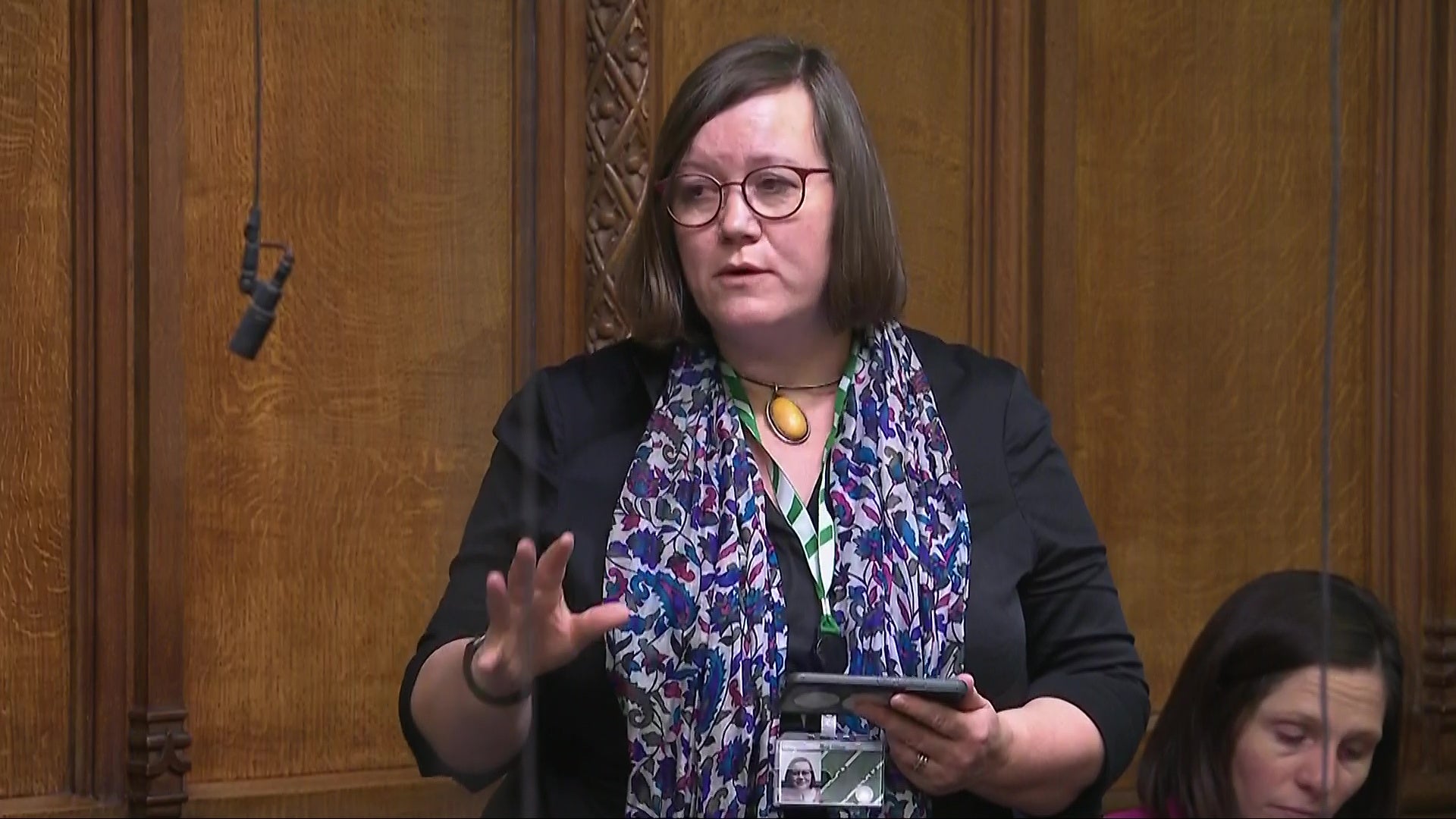
Watch: Kim Leadbeater makes passionate assisted dying bill plea: ‘Right to choose doesn’t take away right not to’
13:01 , Jabed Ahmed
Kemi Badenoch and Diane Abbot unite in fears over safeguards
12:46 , Jabed AhmedKemi Badenoch and Diane Abbott agree on very little, but both have joined thousands of doctors and nurses who expressing concerns over the assisted dying legislation.
In a post on X, the Tory leader said she supports the principle of assisted dying but “the system cannot yet manage the complexity proposed and the bill is being rushed.”
Ms Abbott, a veteran left-wing Labour MP, has just spoken in parliament saying she “cannot vote for a Bill” with doubts about the safeguards within it.
The Independent first revealed their reservations earlier this month:
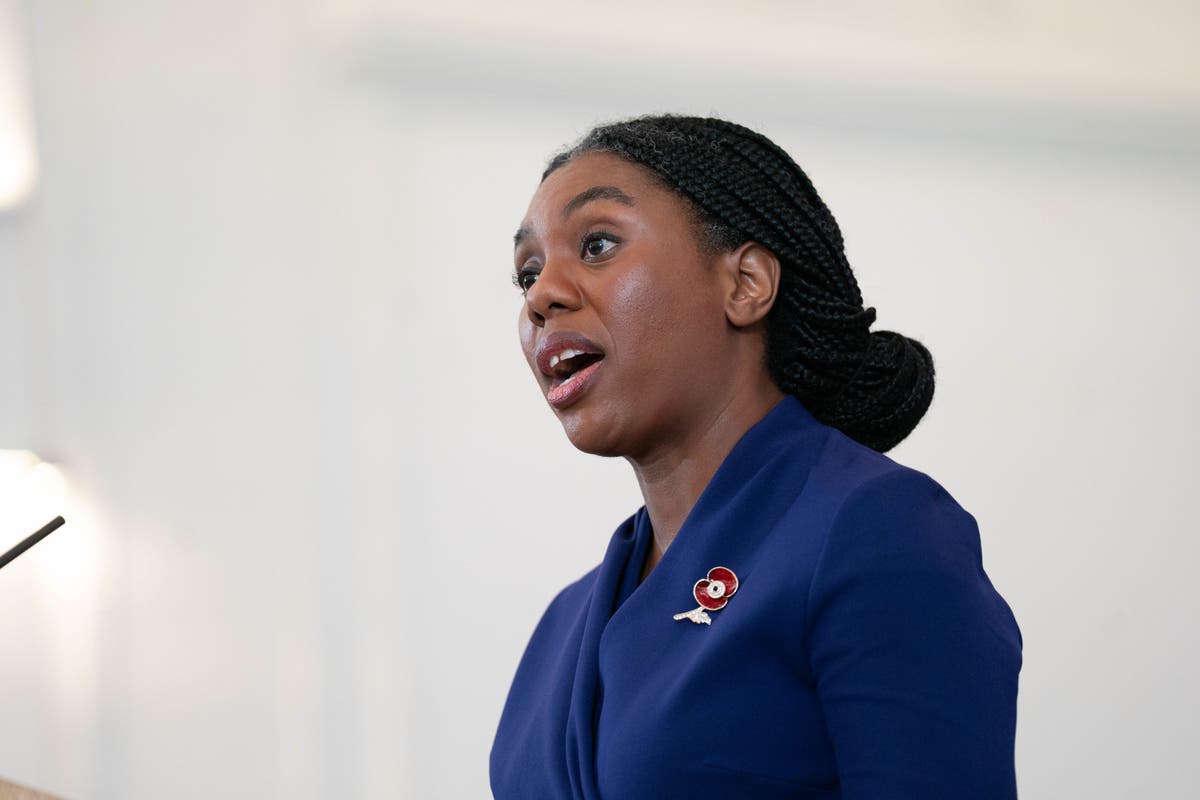
Assisted dying unites Kemi Badenoch and Diane Abbott in fears over safeguards
‘It is our job to protect choice’, Tory MP argues
12:37 , Holly BancroftConservative MP Alicia Kearns has said that slippery slope arguments against the Assisted Dying Bill are not demonstrated in Australia and states in the US.
She told MPs: “It is our job to protect choice…Supporting the choice of others does not diminish the principle of compassion. To deny choice to others with six months to life, where their choice does you no harm, is wrong.”
Ms Kearns argued that the Bill is the right mechanism to start a process of debate, saying it would be a “tragedy” if it did not pass.
‘We must be able to have a good death'
12:33 , Holly BancroftRachel Hopkins, Labour MP for Luton South, argued in favour of the Bill, speaking about how her Humanist beliefs have impacted her thinking.
She told MPs: “As a humanist I believe that we have but one life and that we should live it well…I also believe that every person should have agency and a right to a safe and painless death.”
She spoke about her grandfather’s difficult death from prostate and secondary cancers. “Surely in a modern society if we are able to live a good life we must be able to have a good death,” she said.
“This legislation is not about ending life but shortening death,” Ms Hopkins said.
Watch: Dignity in Dying campaign outside Houses of Parliament ahead of vote
12:23 , Jabed AhmedSir David Davis: I will vote in favour of the Bill despite problems I want to fix
12:22 , Holly BancroftSir David Davis, a Conservative MP, has called on the government to give MPs the time “to get this right”, adding: “If we get this right it will be one of the things we can be most proud of”.
Sir David said he was in favour of the Bill in principle and would vote for it today.
He added: “We have the example of a very wide range of outcomes of other countries who have tried this. If I think after second reading that this Bill is heading towards Belgium or Canada I would vote against.”
Sir David said there were problems with the Bill that he wanted to see fixed, such as the ability for doctors to suggest an assisted death to a patient. But he added that he was voting first on principle and urged government to give time for MPs to debate it after today’s vote.
Bill is a ‘wrong and rushed’ answer, Labour MP says
12:14 , Jabed AhmedThe assisted dying Bill is the “wrong and rushed answer to a complex problem”, Labour MP Rachael Maskell said.
She told the Commons: “The Bill falls woefully short on safeguarding patients, too flawed to amend. It’s the wrong and rushed answer to a complex problem.”
The MP for York Central said coercion is her “greatest concern”, adding: “While we recognise coercion in relationships or elder abuse in dying – where there is malign intent – this Bill fails to safeguard.”
Ms Maskell also raised concerns about the Bill’s impact on disabled people, she said: “We fight in this House to take stigma, give dignity, equality and worth, it is why disabled people fear this Bill. It devalues them in a society where they fight to live.”
“If you stand for equality, you will recognise the safeguarding failures in this Bill,” she added.
Actor Liz Carr speaks out against against the assisted dying Bill
11:25 , Jabed AhmedActress and disability rights campaigner Liz Carr has said there is a “fine line between terminal illness and disability” at a protest against the assisted dying Bill outside Parliament.
Speaking from Old Palace Yard, Ms Carr, 52, who has starred in TV shows Loki and Silent Witness said: “As disabled people, there’s a really fine line between terminal illness and disability.
“Our lives go in and out of the NHS and the medical system, and I think we are probably slightly less trusting than your average person.
“We know doctors are fallible, we know mistakes are made about prognosis, and we are concerned that the power that the medical profession wields in our lives will become more uncontrolled if this Bill goes through.”
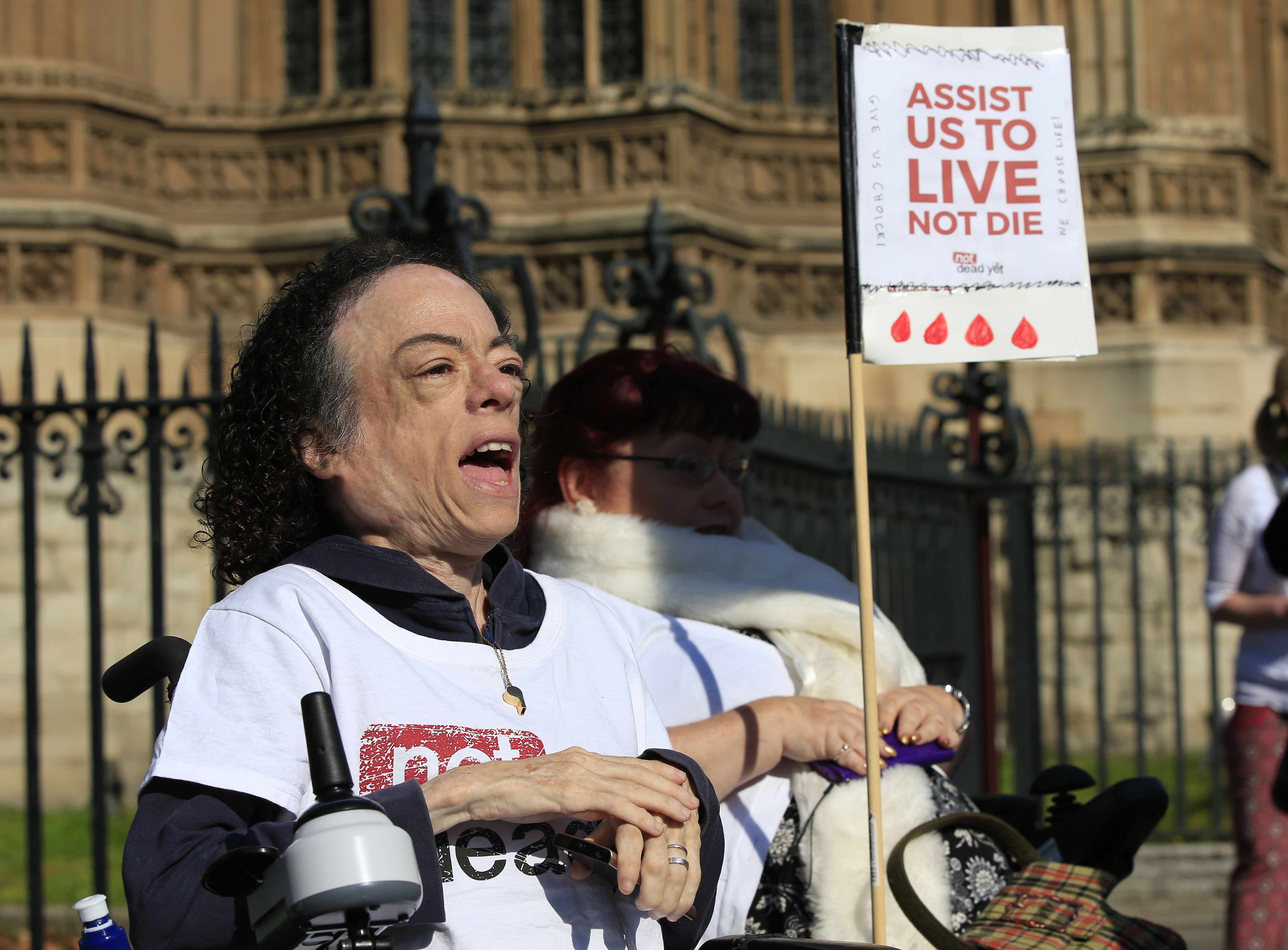
Terminally ill person will need to consider decision at least 8 times under bill, MP says
11:25 , Holly BancroftLabour MP Andrew Slaughter has said that under the Bill a terminally ill person will need to consider their decision at least eight times, assuring MPs that there are safeguards in place.
“The decision for me is about human dignity, and it is about agency, and I would like to think that even at the end of life, especially at the end of life.. That they can still exercise that agency and make those decisions for themselves,” he argued.
Tory MP Kit Malthouse has said that the “death bed for far too many is a place of misery, torture and degradation”.
On the issue of the capacity of the High Court, Mr Malthouse said it was ridiculous to suggest that “I should drown in my own fecal vomit because it is too much for the judges to deal with… they will cope as they have done all these years.”
Mr Malthouse has said that if the Bill is not passed people will continue to take their lives in painful ways, saying: “I guarantee that there will be someone over the river in St Thomas’s now who will be starving themselves to death.”
Five arguments for and against legalising assisted dying
11:09 , Jabed AhmedRead the full report from my colleague Tara Cobham below:
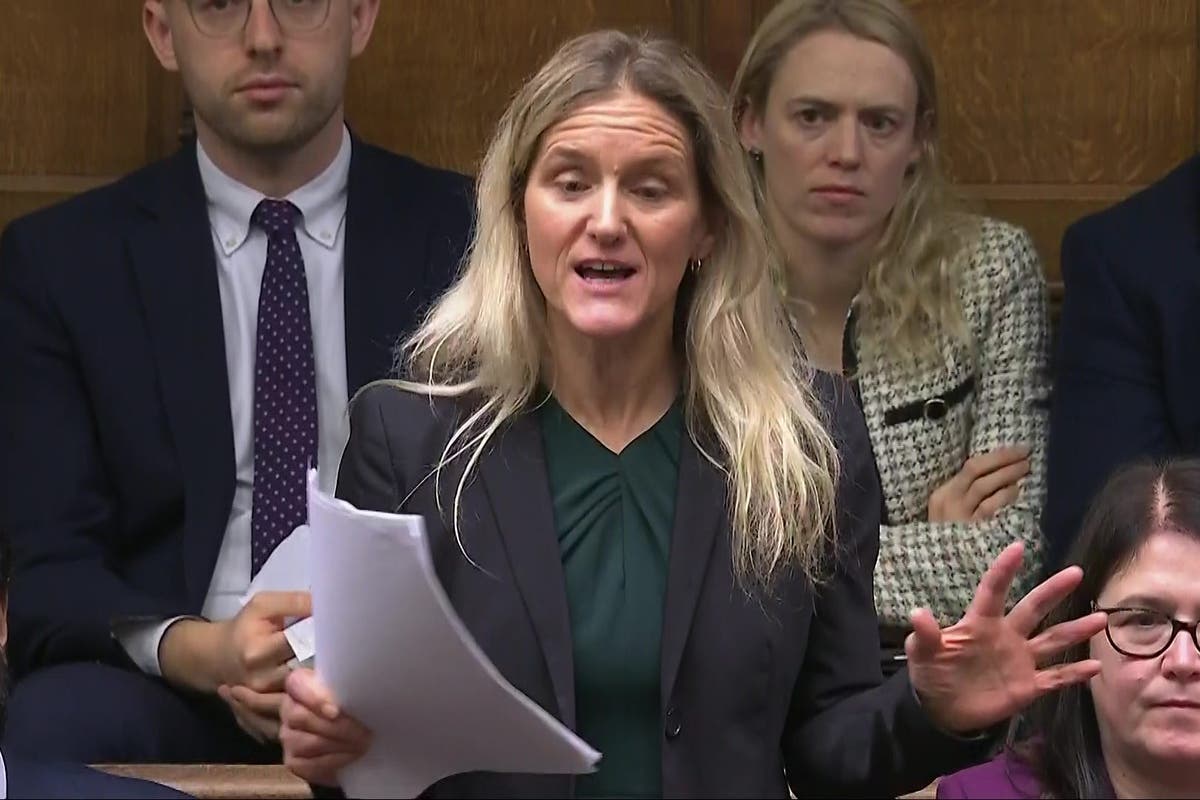
Hundreds of protesters outside Parliament in support of assisted dying bill
10:53 , Jabed AhmedHundreds of protesters gathered outside Parliament on Friday calling on MPs to vote for Kim Leadbeater’s private members’ bill to legalise assisted dying.
At Parliament Square, just around the corner from a demonstration against the Bill, protesters dressed in pink held signs asking MPs to “vote for dignity”.
One held a sign saying “my life, my death, my choice”.
Speaking from the protest, Ally Thomson, director of communications at campaign group Dignity in Dying, said: “It’s not a law for people who are making a choice between living and dying, that choice has been made already for them.
“They’re having a choice between two kinds of deaths.
“We know that the majority of the British public are very much in favour of Kim’s Bill.
“We would ask (MPs) to look to the views of their constituents, the voices of those most affected and vote in favour today.”
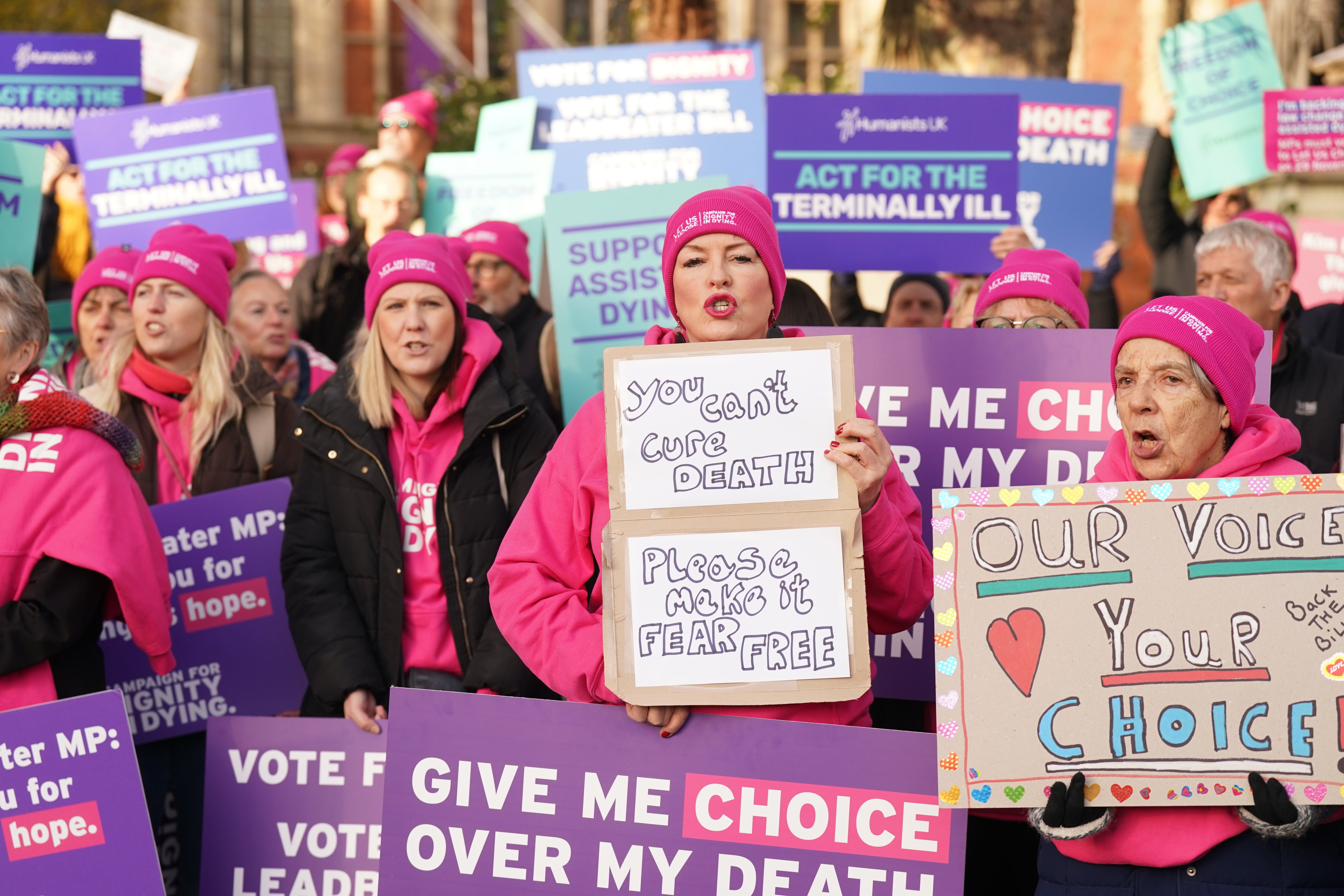
Diane Abbott: The Bill does not have sufficient safeguards
10:47 , Holly BancroftMother of the House Diane Abbott MP has risen to oppose the Assisted Dying Bill.
She is arguing that it is “good principle” for the state to not be involved in death. “I have many reservations about this Bill, and in particular I do not believe that the safeguards are sufficient,” Ms Abbott argued.
She has raised the concerns of the former president of the Family Division of the High Court Sir James Munby about the Bill. Sir James questioned whether there would be secret hearings, whether the decisions will be made on papers and whether there would be capacity within the Family Courts to deal with assisted deaths.
Ms Abbott is concerned that judges might be just “rubber stamping” the application, rather than properly testing the situation.
‘The six month cut-off is an arbitrary line in the sand'
10:40 , Holly BancroftConservative MP Danny Kruger has been making the case against the Assisted Dying Bill, saying that what the Bill would allow in reality is “assisted suicide”.
Mr Kruger MP explained that he also has issues with the assessment carried out by doctors under the terms of the Bill: “It is impossible for doctors to predict with any accuracy whether a person will die within six months…The six month cut off is an arbitrary line in the sand.”
He also argues that this part of the Bill can be legally challenged by those who don’t qualify, expanding those who would qualify for an assisted death.
Reform MP Richard Tice has risen to say that there are specific issues that need be ironed out with the Bill, but that this can happen after the initial vote.
Mr Kruger is arguing that “pretty much anyone with a serious illness” could qualify to this.
Mr Kruger was interupted with a point of order from another MP, who told him to stop using the term “assisted suicide”, but he responded: “What this Bill will do is amend the suicide act, it will allow people to assist a suicide. We do need to use the proper language here.”
He also raises the point that there is no requirement under the terms of the Bill for the judge to actually meet the applicant for an assisted death.
“There is no requirement..for anyone to tell the patient’s next of kin...that the medical and judicial system is working in secret to end the life of their loved one,” Mr Kruger argues.
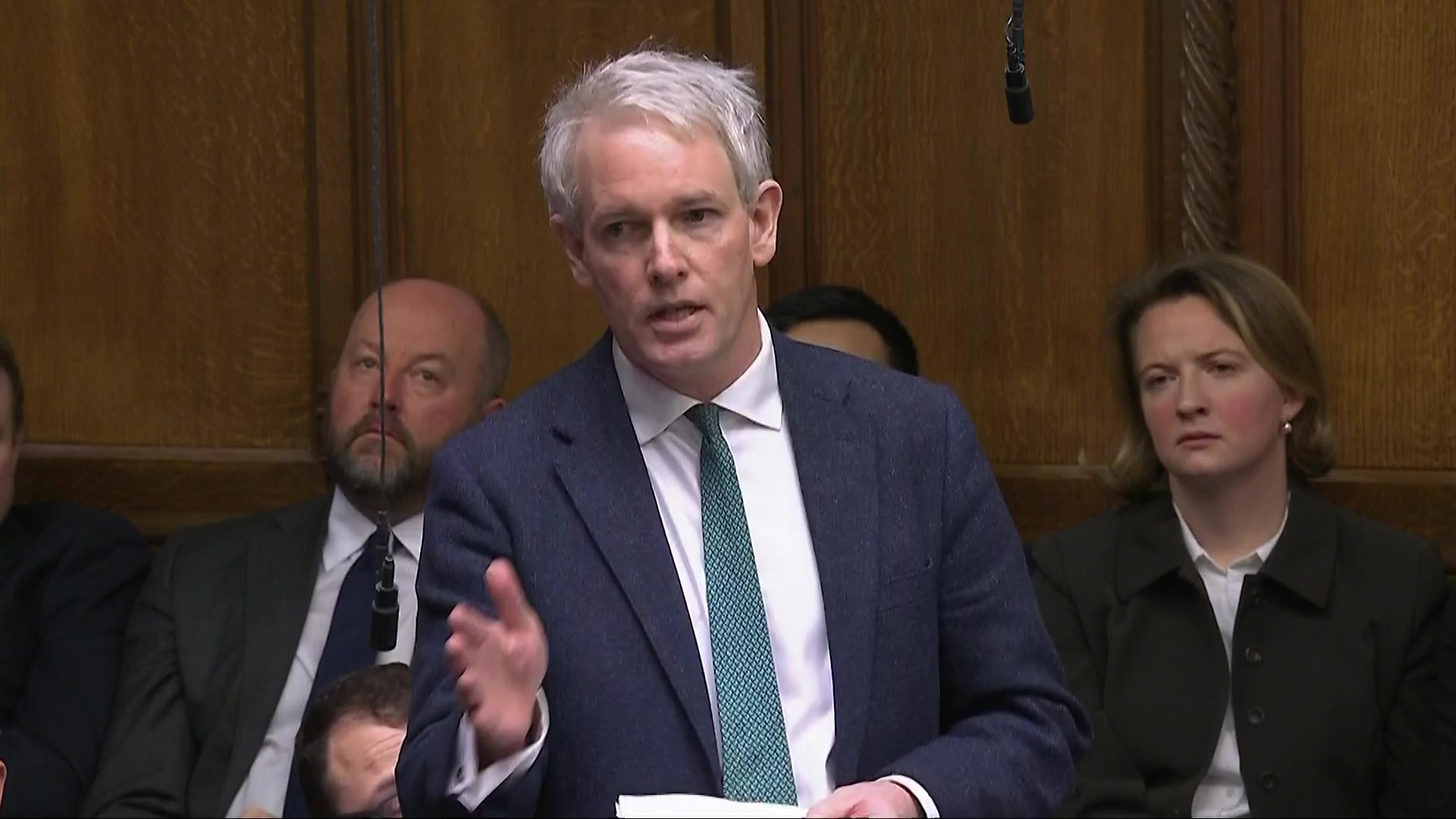
Kim Leadbeater seeks to reassure MPs over bill scrutiny
10:21 , Millie Cooke, Political CorrespondentKim Leadbeater has sought to reassure colleagues over the level of scrutiny the bill will face, saying she will consider giving the Bill Committee the power to take oral and written evidence – something that goes beyond normal practice for a Private Members Bill.
She promised “line-by-line scrutiny” if the legislation passes its second reading, reminding members that a “vote to take this bill forward today is not a vote to implement the law tomorrow”. “It is a vote to continue the debate”, she added.
She also reassured MPs that the committee will meet over a number of weeks, saying there will be “ample time for full consideration of the details”.
It comes after some MPs expressed fears that the legislation has been rushed, with many suggesting that a Private Members Bill is not the right medium for such significant legislation to be debated.
Addressing the Commons, MP Danny Kruger said this bill is “simply too big for the time its been given”.
Kim Leadbeater: Too many people are experiencing ‘human suffering’ as a result of the ‘status quo'
09:57 , Jabed AhmedLabour MP Kim Leadbeater has told MPs about a former police officer who felt he could not visit the Swiss Dignitas clinic with his mother.
The MP for Spen Valley told the Commons: “Former police officer James waved his mum off as she embarked on her final trip to Dignitas. She had terminal vasculitis.
“James desperately wanted to accompany his mum and hold her hand during her final moments, but he knew because of his job as a police officer it was just not possible – indeed, she insisted he must not go with her. So she went alone. No one to hold her hand, no proper goodbye or funeral.
“These are just a few examples of the heartbreaking reality and human suffering which far too many people are experiencing as a result of the status quo. And the public know this.”
Ms Leadbeater later said: “Let’s be clear, we are not talking about a choice between life or death, we are talking about giving dying people a choice of how to die.”
